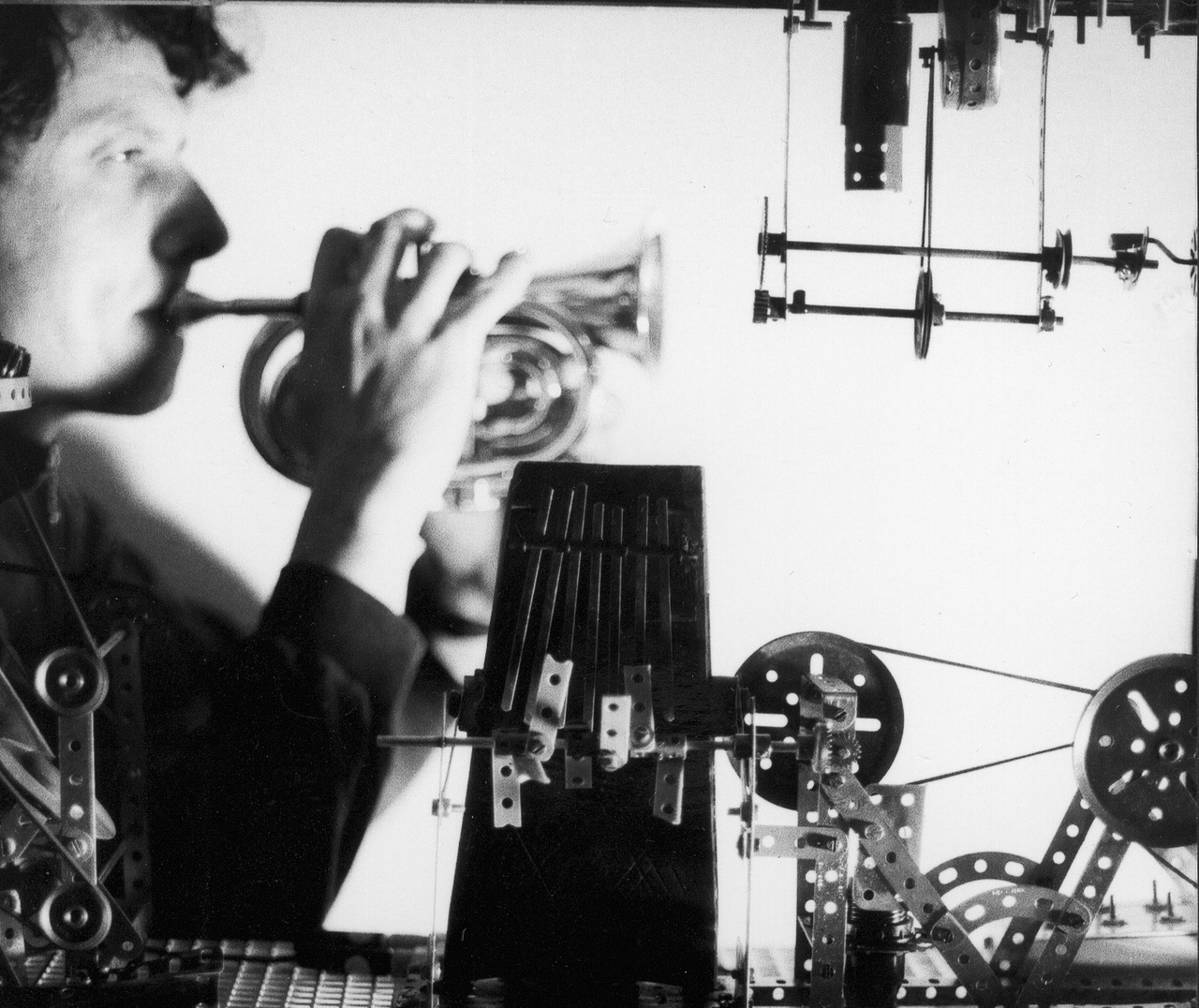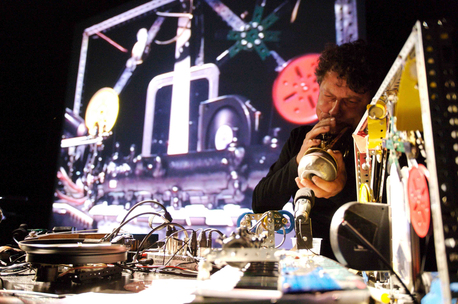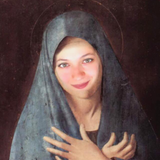Written by:
Laura Marin
Edited by:
Share article:
Instruments
We met Pierre Bastien before his concert in Bucharest, at the tenth anniversary of Rokolectiv festival, and had a pleasant chat on the sunny terrace of the Contemporary Art National Museum.
You integrated many traditional instruments from all over the world in your orchestra - Chinese lute, Morrocan bendir, violin, sanza - to name a few. Can you tell us about your connection with traditional world music?
Pierre Bastien: I probably have a very eclectic interest in music, I like lots of different music genres, and especially the different traditions, and also I have a big interest in tones, because I think that with electronic music the musicians developed this interest in tones, but in electronic tones. Generally, in music you have this - you have different components, like melody, harmony, rhythm, noise, and tones. For me, tones are very important. Usually, people interested in tones go to the shop and buy effects, or they buy a laptop and they use a lot of electronic sounds, or they go to the field and they do some field recordings. Me, I went to the traditions of the world and I collected many instruments, I have maybe 300 in my studio. That was my way, my own path into tones.
Do you have a certain area that you prefer?
P.B.: I think I like everything but, of course, in some areas the people developed more on the percussions, other people developed more string instruments, or horns, like in Tibet, where you will have lots of wind instruments, like the Tibetan horns, Nepalese horns, gyaling oboe. Not many drums but still, there are a few, some cymbals, but mostly they went into wind instruments. Some other people went more into strings like us, in Europe. So I like everything. Africa is a wonderful continent because they really explored wind instruments, percussions and strings widely. I also like what happened in Japan, in China, India...I never collected much of Indian instruments, I have a few, the most primitive ones, because you need a lot of training before being able to perform properly on these instruments, so I prefer the more direct ways.
Were you musically trained?
P.B.: Yes, I studied guitar and double bass, but I never play neither guitar nor double bass on stage, I play trumpet. I think I'm freer with an instrument that I don't know so well. I get more freedom.
How do you relate to your music being written? Do you feel you can write your music?
P.B.: I used to write it afterwards. I used to write the music for the Music Society, to get my copyright, but nowadays it's not necessary anymore because you just sign a tape and that's it.
But you wrote the music for your instruments, right?
P.B.: You can write any kind of music, you can put on paper any type of music, just the tones you can't really define, because when you use an African goje you cannot explain what the tone is, this is not writable, but you can write the notes, the different rhythms, the chords, etc. But I don't believe you need to have it written to play. Actually, I believe the exact opposite - last week I was recording for my new album and I had a little technical problem on one track and I wanted the same notes, I improvised, the notes were perfect, just that there was some water in the trumpet that I didn't like, so I decided to write down my notes and play them again and I did it but I didn't play with the same feeling; when I was reading my notes there was a distance. I think people who interpret music they have this distance; it's very difficult to be in the skin of the composer, and the composer was myself but I couldn't put myself into my own skin. Paradoxically.




